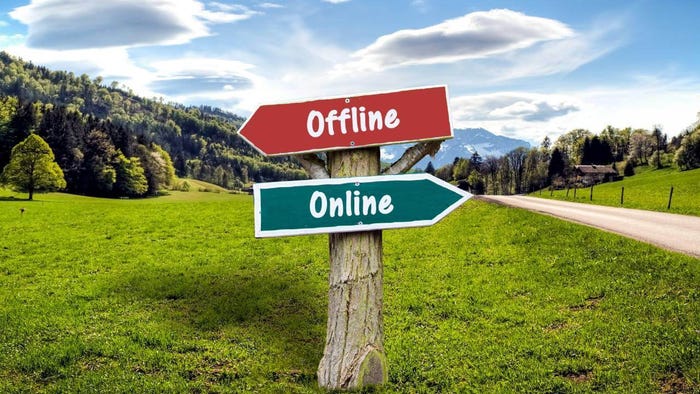FCC seeks more input on digital discrimination rules
After an initial round of public comments last year, the FCC is soliciting 'focused comment on the rules we should adopt' to end digital discrimination.

After launching an initial public comment period last year, the FCC is again seeking input on how to address digital discrimination, also known as digital redlining.
The latest notice of proposed rule-making was published in late December and adopted at the Commission's final open meeting of 2022. The FCC first published a draft notice of inquiry in February 2022 to invite public comment on how to interpret the mandate by Congress in the Infrastructure Investment and Jobs Act (IIJA) to "adopt final rules to facilitate equal access to broadband internet access service."
Figure 1:  (Source: Zoonar GmbH/Alamy Stock Photo)
(Source: Zoonar GmbH/Alamy Stock Photo)
Since then, the matter has received a trove of comments from industry associations and public interest groups, among other stakeholders, with broad disagreement between industry and consumer representatives on the definition of digital discrimination, whether the FCC should limit its definition to "intentional discrimination" and more.
With a mandate in the IIJA to implement rules banning digital discrimination within two years, or by the end of November 2023, the FCC said it is now seeking "focused comment on the rules we should adopt."
Specifically, the FCC wants detailed comments on five areas:
How to define "digital discrimination of access"
How to revise its informal consumer complaint process
Rules to adopt to prevent digital discrimination of access
Examples of state and local models and best practices
Other ways to promote digital equity and inclusion
No easy answers
Within the FCC's questions are some thorny issues.
One area where there's disagreement is whether digital discrimination should be defined solely based on intent. While service providers and trade groups like AT&T and ACA Connects argued in their comments that the FCC should limit its definition to intentional discrimination, public interest groups like the National Digital Inclusion Alliance (NDIA) urged the Commission to prohibit practices that produce disparate outcomes.
To settle that, the FCC is seeking comment on its definition of digital discrimination "as one or a combination of the following: (1) 'policies or practices, not justified by genuine issues of technical or economic feasibility, that differentially impact consumers' access to broadband internet access service based on their income level, race, ethnicity, color, religion, or national origin'; and/or (2)' policies or practices, not justified by genuine issues of technical or economic feasibility, that are intended to differentially impact consumers' access to broadband internet access service based on their income level, race, ethnicity, color, religion, or national origin'," according to the public notice.
The FCC is also seeking further input on the scope of the definition of digital discrimination, including whether entities other than broadband providers should be covered by the definition, who can be the subject of such discrimination and how to determine when digital discrimination has occurred.
Further, the FCC is seeking input on rules adoption, including whether to adopt "a broad prohibition on digital discrimination of access, and how to structure and enforce such a prohibition."
The Commission also wants to know which "punishments or remedies" it should impose on providers accused of digital discrimination.
"Are monetary forfeitures the appropriate punishment in proven cases of digital discrimination of access? What other punishments or remedies might be appropriate?" the FCC asked in its notice.
To that end, however, the FCC is also seeking comment on its own authority: "Are there limitations on our ability to enforce violations of such rules or act upon complaints of digital discrimination of access?" the FCC asked. Indeed, some commenters like AT&T have argued that the Commission is limited by law as to what new policies or punishments it may impose to eradicate digital discrimination.
Next steps
In a statement accompanying the release of the notice of proposed rule-making, FCC Chairwoman Jessica Rosenworcel said that establishing final rules this year would require "more engagement, more collaboration, and more work."
"The input we have received thus far from stakeholders is an awfully good start. But to get this right, we still need more input and ideas because we can't reach our goal of connecting everyone, everywhere unless we eliminate digital discrimination," she said.
With the notice of proposed rule-making released in late December, the public will have 30 days to submit comments once it's published in the Federal Register, and 60 days to file reply comments.
Related posts:
— Nicole Ferraro, editor, Light Reading, and host of "The Divide" podcast.
About the Author(s)
You May Also Like












